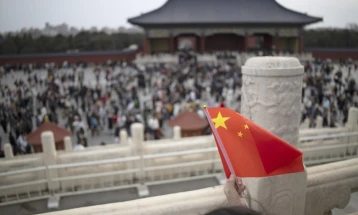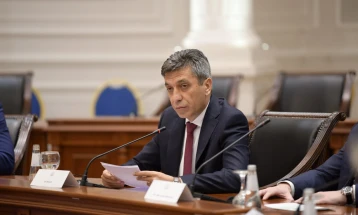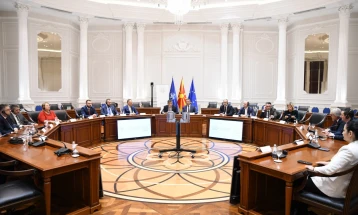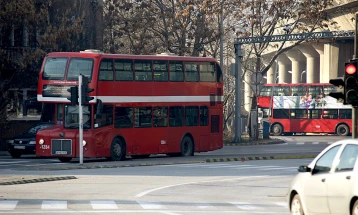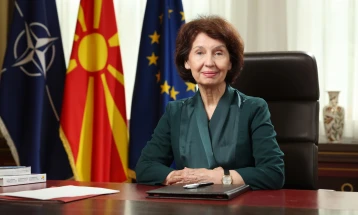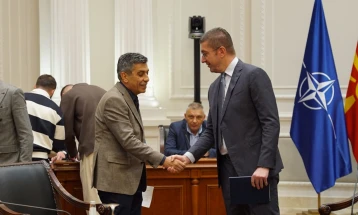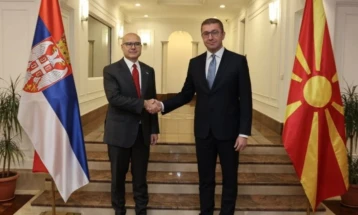Euronews: Why renewed tensions with neighbours have stalled North Macedonia’s EU membership bid
- According to Euronews, despite Albania now overtaking its neighbour, officials in Brussels and Skopje still hope the recently-installed Macedonian government will remain focused on its accession path.
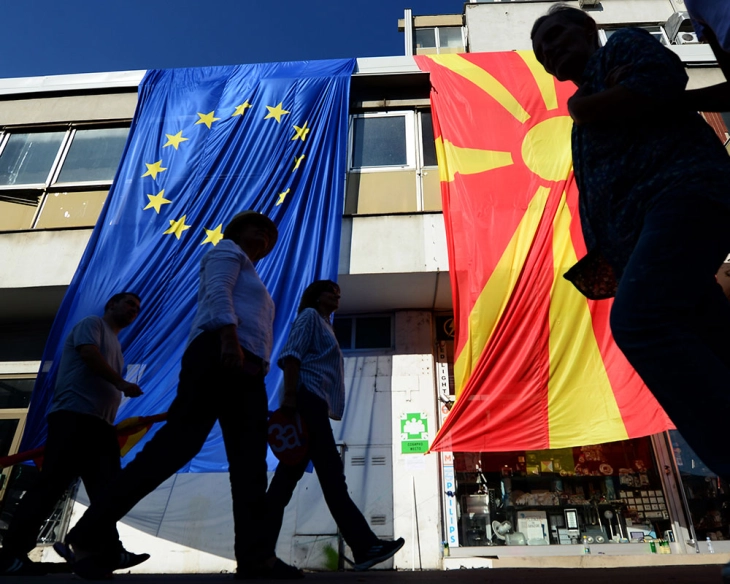
Brussels, 1 October 2024 (MIA) - Last week, the Committee of Permanent Representatives of the Governments of EU Member States (COREPER) decided that Albania will begin negotiations on October 15 with Cluster 1 – 'Fundamentals,' thus moving into the next phase of the EU membership negotiation process and separating from our country on the EU path.
According to Euronews, despite Albania now overtaking its neighbour, officials in Brussels and Skopje still hope the recently-installed Macedonian government will remain focused on its accession path. The EU executive is betting on its new €6-billion Growth Plan for the Western Balkans, under which it will inject investment into the seven Western Balkan candidate countries over the next three years in return for reforms designed to bring their economies and societies closer to the EU.
“Luckily, the new government in North Macedonia has really bought into the EU accession process as did the previous government,” a diplomatic source said. “When the new government was sworn in, there were no major deviations from the reform agenda negotiated by the previous government.” “But the proof is in the pudding. We’ll need to wait and see if they implement these reforms,” the diplomat added.
The €6 billion - which consists of €2 billion in grants and €4 billion in concessional loans - will be distributed according to each country’s GDP and population, but only made available once they have implemented so-called ‘reform agendas’ designed to align their laws, standards and practices with those of the EU.
Another unique feature of the Growth Plan is that countries that fail to hit their reform targets could see the funds allocated to them diverted to other countries in the Western Balkans region.
The cash-for-reforms model is part of Brussels’ plan to accelerate reforms on a raft of issues including the rule of law, the independence of the judiciary and the fight against corruption. The reform agendas are expected to be endorsed as early as October, meaning the first "pre-financing" payments could be disbursed by the end of this year.
All countries - with the exception of Bosnia and Herzegovina - have to date submitted their draft reform agendas, as officials in Sarajevo are still deciding how the country's parliamentary assembly should endorse the plans.
Another EU official, speaking on condition of anonymity, added that tackling corruption was one of the biggest challenges in North Macedonia and other candidate countries in the region, but that the EU executive had robust mechanisms to safeguard its funding.
“Corruption is present. But we have a policy of zero tolerance for corruption and very strict frameworks in place,” the EU official said, “If it happens, and it does, our mechanisms kick in.”
But even if Skopje successfully meets all its targets and reaps the benefits of the Growth Plan, it can only progress on its path to EU membership if it continues to mend the relationship with neighbouring Bulgaria, Euronews underlines.
That will prove challenging as lawmakers in Sofia and Skopje continue to exchange combative rhetoric.
Each member state must give its explicit green light to the opening of each step in the EU accession process.
Responding to EU ambassadors' failure to move on accession talks with North Macedonia, former Bulgarian premier Boyko Borissov - who leads the biggest party in the Bulgarian parliament and chairs its foreign affairs committee - said Skopje had to "face the consequences of its actions."
The road is part of the planned 'Corridor 8' route linking Italy’s Adriatic coast by sea to Albania, then stretching all the way through North Macedonia to the port of Varna on Bulgaria’s Black Sea coast. A rail connection along the same corridor is also in the works.
When complete, it will anchor the Western Balkan nations of Albania and North Macedonia into Europe’s transport and trading network, quite literally paving their way into the European Union, while also providing NATO with a strategic military corridor, Euronews reports.
Photo: MIA archive

